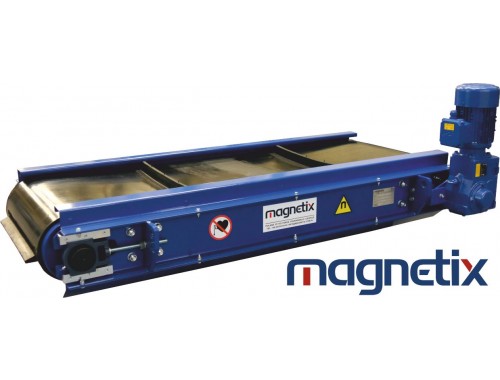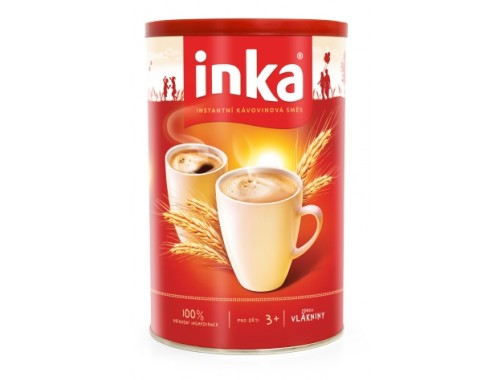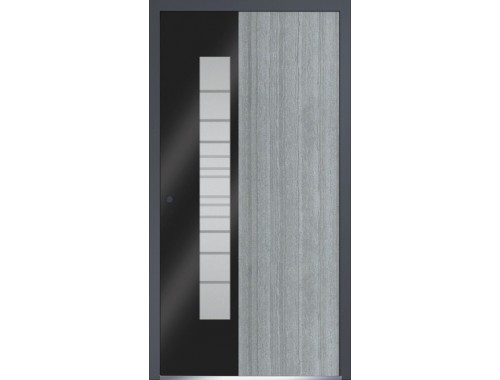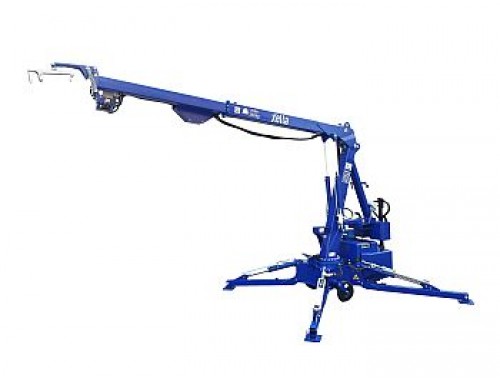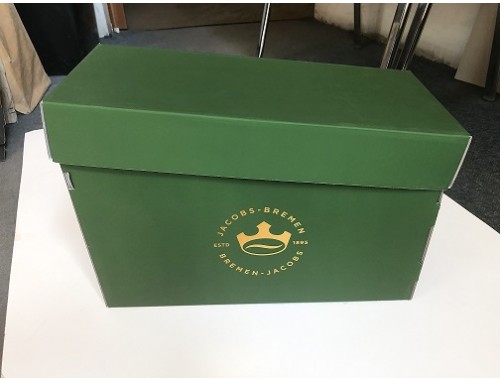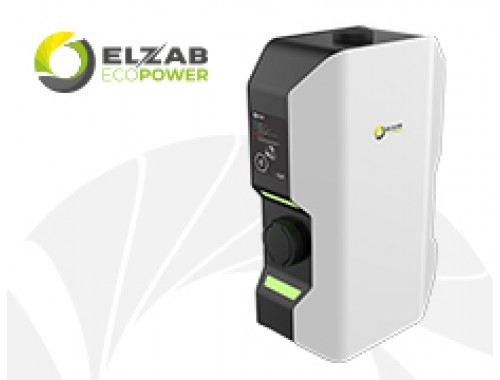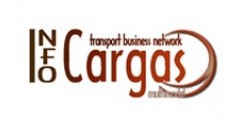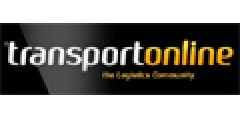Effective Car Sharing Management: The Role of CRM Systems
Car sharing is a short-term car rental business model that has been gaining rapid popularity in recent years, especially among residents of large cities. From 2017 to 2022, the number of car sharing service users has increased by almost 30%, and experts predict that by 2027, more than 63 million people will be using car sharing.
Unlike long-term rentals, car sharing often involves payment per minute for rental services, although in recent years, car sharing companies increasingly offer hourly and even daily rates to their customers.
The growing popularity of car sharing is due to several significant advantages that users of such services receive. Firstly, car sharing is cheaper than buying and owning a car, as the customer does not spend money on registration, insurance, maintenance, parking, refuelling, and vehicle washing.
Secondly, short-term rental gives the user more mobility and flexibility: they can rent a car of any necessary type, pick it up in one place, and leave it in another. Most car sharing services often own parking lots in different parts of the city, allowing customers to quickly and comfortably reach almost any location. Thirdly, using car sharing helps reduce greenhouse gas emissions, and such services increasingly include electric cars in their fleets, positively impacting the environmental situation.
Many entrepreneurs plan to open their car sharing service, as this business can be very profitable and successful. However, to maintain competitiveness and dynamically develop their company, business owners need to optimise all management processes. This is where specialised car sharing software comes into play. You will learn about the features, functions, and benefits of such CRM systems from this material.
What is a CRM System in the Context of Car Sharing?
Car sharing system is a set of digital management tools designed with the specifics of the car sharing business in mind. The functions and capabilities of such systems help car sharing companies control, optimise, and improve the efficiency of most business processes.
You can manage the company from a single convenient platform, while all important data will be securely encrypted and can be stored in the cloud, with different levels of access granted to company employees. Here are some CRM system features that help enhance the efficiency of car sharing services:
- Customer Relationship Management (CRM). Collect various information about customers, maintain organised databases, manage advertising campaigns and loyalty programs, and regularly improve customer service quality using specialised software.
- Car Reservation. Corporate software for car sharing becomes much more efficient with optimised online reservation processes. Customers can quickly and easily install the application, explore the range of cars, enter data, book a specific model, pay for the service, and receive confirmation almost instantly.
- Vehicle Tracking. A set of functions allowing car sharing companies to avoid many risks: control the location and technical condition of vehicles, receive notifications of theft attempts and fuel level data, and track the profitability of each vehicle through detailed order history.
- Electronic Document Management. Company employees can save a lot of time and effort by conducting electronic document management. Thanks to digital signatures, you can sign contracts with customers, partners, and contractors remotely, making the document process faster and simpler.
- Calendar Management. Convenient schedules for payments, insurance contributions, and vehicle maintenance help control multiple business processes simultaneously and not miss any details. This minimises most risks and reduces the likelihood of unexpected expenses.
Automation of Processes in Car Sharing with CRM
A few decades ago, almost all business processes in car rental companies were carried out manually. However, the evolution of digital technologies has been a powerful catalyst for the development of the industry, and specialised car sharing software has opened up opportunities for automation.
Currently, various companies can enhance their efficiency and reduce the likelihood of errors associated with human factors through automation. In particular, a car sharing service can automate key processes:
1) Order Processing. Real-time car availability tracking allows for the automation of order processing, entering all customer requests into a unified database. This streamlines the entire booking process, from car selection to confirmation, without involving company specialists.
2) Customer Notification. Automatic notifications, including payment confirmation, rental period reminders, personalised offers, and information about discounts, bonuses, and promotions, can be sent to customers. This automated process fosters customer loyalty and simplifies the work of multiple departments within the car sharing company.
3) Schedule Tracking. Automatic notifications synchronised with your work calendar can be set up. For instance, company employees can receive automatic reminders about scheduled maintenance or cleaning of vehicles, payment of insurance premiums, taxes, and other important payments.
4) Statistical Data Collection. Another important function that can be automated. Collect data on the current market situation, competitor activities, preferences of the target audience, and seasonal changes in demand. Based on this information, you can automatically generate reports on parameters that interest you.
5) Invoicing. Car sharing systems typically offer numerous templates that can be used for invoicing or other regular financial operations. You also have the option to create your custom template for partially automating the work of the accounting department.
Automation of order processing, payments, reporting, and other aspects allows for saving employees' time, increasing productivity, expanding the customer base, and minimising various risks.
Optimising Customer Interaction through CRM System
In the current competitive car sharing landscape, owners of such businesses should pay special attention to customer attraction and loyalty retention strategies. Corporate software for car sharing can handle these tasks more effectively through certain CRM system features.
Audience Segmentation.
You can gather information about your customers and segment them into groups to better understand the tastes, needs, and decision-making motives of different target audiences. All data can be analysed through detailed reports, choosing specific parameters related to consumer behaviour.
Personalised Offers.
Through statistical and analytical features, you can learn about the preferences of specific users and, based on this data, create highly individualised offers. This helps maintain customer loyalty in the long term.
Bonuses and Discounts.
Car sharing software typically allows for optimising the planning and management of advertising campaigns, launching promotions and attractive offers, as well as managing a loyalty program by awarding bonuses and providing additional benefits for regular use of the car sharing service.
Feedback.
You can respond promptly to customer feedback since all questions and customer wishes are automatically entered into the system. For even greater optimization of user interaction, a chatbot based on artificial intelligence can be integrated. This helps collect data for making changes to the business strategy and improving customer service quality.
These and other CRM system features for car sharing enable the development of an effective customer attraction and retention policy, contributing to maintaining a good brand reputation among consumers.
CRM System and Car Parking Optimisation
In the development of a car sharing company's business strategy, determining optimal locations for vehicle parking is of immense importance. The profitability of the enterprise, brand recognition, and popularity directly depend on this.
In corporate software for car sharing, there is the possibility to streamline the process of choosing such locations through a range of tools.
For instance, you can connect each vehicle in the car fleet to GPS navigation using special trackers. This enables tracking the movement of cars and preserving the most popular and optimal routes, and integration with mapping data helps visualise information about in-demand locations.
Keeping a record of the order history for each car is also beneficial. This history can provide insights into which car models different target audiences prefer and which ones are used most frequently at specific locations.
Statistical and analytical functions are also useful when selecting parking spaces. You have the ability to collect and analyse information about passenger flow and the number of orders at each parking spot to determine the most profitable and lucrative ones.
The software also helps learn about the popularity level of various areas. Typically, car sharing users often rent cars near tourist attractions, shopping centres, business districts, as well as at train stations and airports.
Additionally, many of the mentioned software tools not only allow tracking but also forecasting demand for cars in different city locations. Therefore, a car sharing system is also crucial for building a successful and profitable business strategy.
Conclusion
Car sharing software is a set of digital tools indispensable for modern car sharing businesses.
Such systems help automate the execution of most routine tasks, including order processing, invoicing, and notification distribution. Additionally, with CRM, you can significantly optimise the reservation process, improve customer service quality, segment the target audience, and monitor the vehicle fleet.
Therefore, by using specialised software, you can save substantial company resources, optimise expenses, increase profitability, attract and retain more customers, and avoid numerous financial and reputational risks.
- Heavy transport
Interesting information
Effective Car Sharing Management: The Role of CRM Systems

Source: https://rentsyst.com

See also:

Customs agency vs Customs office
All formalities in one place. Quickly and effectively for the Polish carrier Bial-Mich...

Fructus Transport - A Modern Transport Company with Years of Tradition
Our modern management solutions, support of innovative IT systems...

Choose a Polish carrier
The strategies of Polish carriers may be diverse because they depend on many factors...

Effective Car Sharing Management: The Role of CRM Systems
Car sharing is a short-term car rental business model that has been...
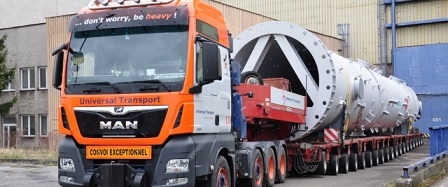
Cross boarder heavy duty transport, from the Czech mountains to the banks of the Tisza
In March and April, Universal Transport took over the delivery of three distillation...
Help needed ?
If you have not found the desired freight, an available truck or a suitable transport and forwarding company, or the search results are not satisfactory for you, do not hesitate to write to us to tell what you are looking for. We will send your inquiry directly to transport companies.
Write to us













